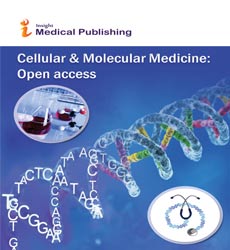Abstract
Association of Adiponectin levels with glycemic control in Sudanase patients with Type2DM
The pathogenesis of type 2 diabetes mellitus is due to two major abnormalities including insulin resistance and dysfunction, which lead to the inability to regulate blood glucose level. Adiponectin is a hormone secreted by the adipose tissue and it takes part in glucose metabolism. It has insulin-sensitising properties. Low levels of adiponectin leads to reduction of fatty acid oxidation, decreased glucose uptake in skeletal muscle cells and increased level of free fatty acids leading to insulin resistance. Leptin is another adipokine produced by adipose tissue involved in the control of food intake via its action on the hypothalamus, suppression of appetite, and stimulating energy expenditure. leptin plays a critical role in pathophysiology of type 2 diabetes mellitus The aim of the study was to investigate the association of serum adipokines levels with glycemic control and metabolic dyslipidemia in Sudanese patients with type 2 diabetes mellitus. This was a case control study. 202 patients with type 2 diabetes and 100 non-diabetic controls participated after signing written consent. Weight (kg), and height (m) were measured then the body mass index (kg/m2) was determined. Blood samples were collected after an overnight fasting. FBG, HbA1c and lipid profiles were measured using enzymatic methods. Adiponectin and leptin were measured using sandwich ELISA. Adiponectin concentrations was significantly lower in patients with type 2 diabetes compared with the controls (p<0.001) and it is inverse correlated with HA1c (Pearson Correlation -.160, P value = 0.005), total cholesterol and LDL levels (P = 0.05) and direct correlated HDL levels (P = 0.05). Leptin concentrations was significantly higher in patients with type 2 diabetes compared with the controls (p<0.002) and it is positively correlated with HA1c (Pearson Correlation .155, P value = 0.02), total cholesterol and LDL levels (P = 0.05), there were no correlation with HDL and TG levels. Patients had significantly higher fasting blood glucose, BMI,HbA1c levels and lipids profile compared with the controls. Patients with type 2 diabetes mellitus had decreased levels of serum adiponectin, high levels of serum leptin. There were significant correlations found between adiponectin and leptin levels with glycemic control and metabolic dyslipidemia.
Author(s):
Halima Eltahir
Abstract | Full-Text | PDF
Share this

Google scholar citation report
Citations : 187
Cellular & Molecular Medicine: Open access received 187 citations as per google scholar report
Abstracted/Indexed in
- Google Scholar
- China National Knowledge Infrastructure (CNKI)
- Cosmos IF
- Geneva Foundation for Medical Education and Research
- Secret Search Engine Labs
Open Access Journals
- Aquaculture & Veterinary Science
- Chemistry & Chemical Sciences
- Clinical Sciences
- Engineering
- General Science
- Genetics & Molecular Biology
- Health Care & Nursing
- Immunology & Microbiology
- Materials Science
- Mathematics & Physics
- Medical Sciences
- Neurology & Psychiatry
- Oncology & Cancer Science
- Pharmaceutical Sciences

